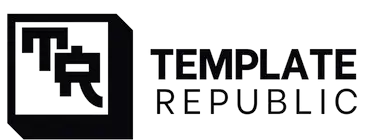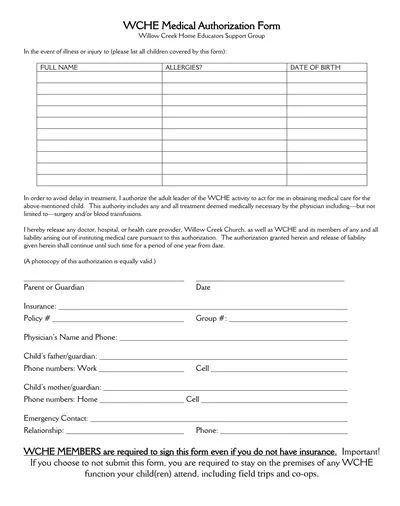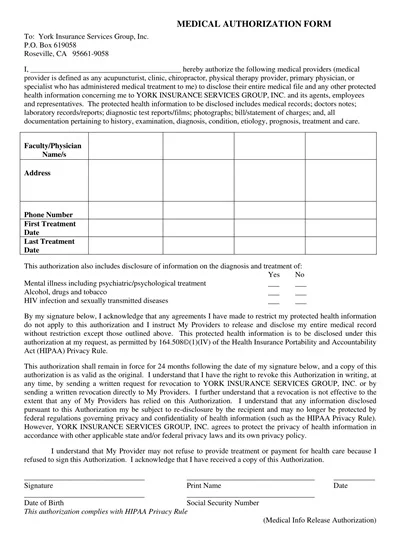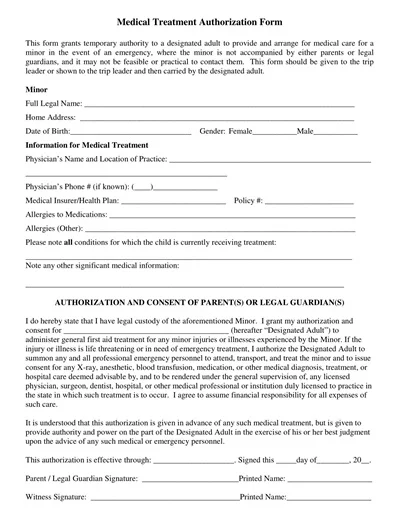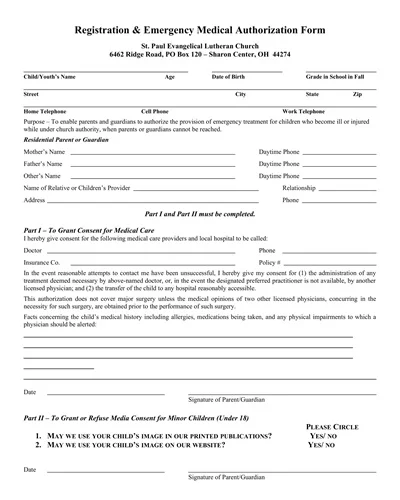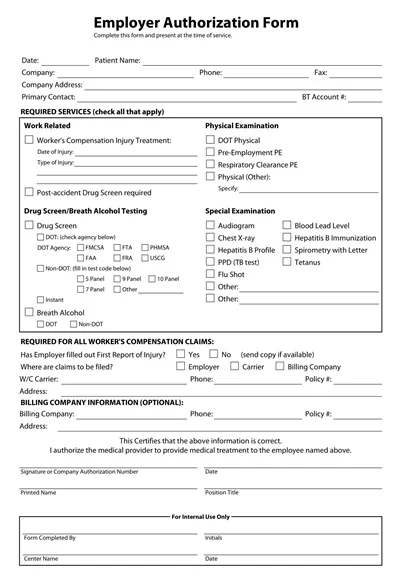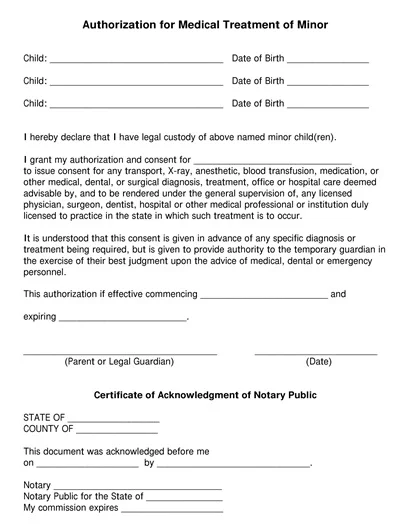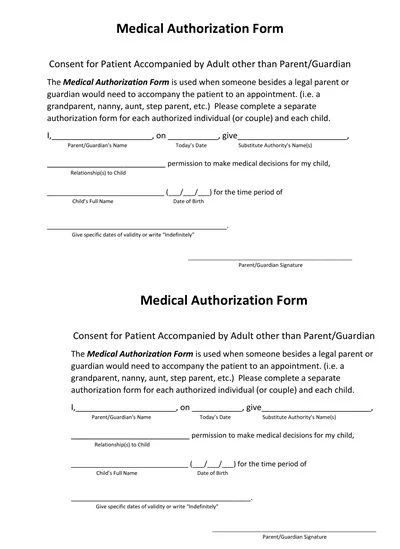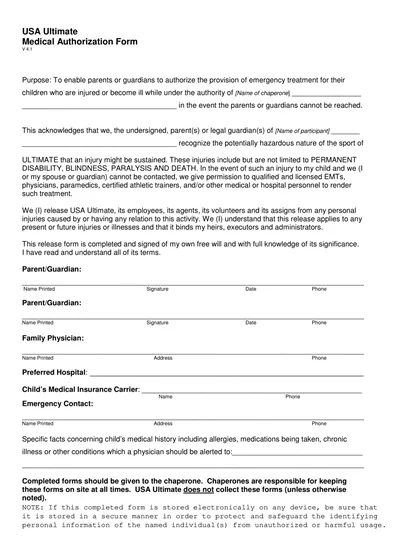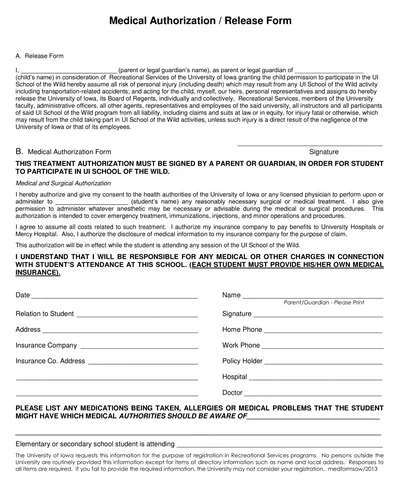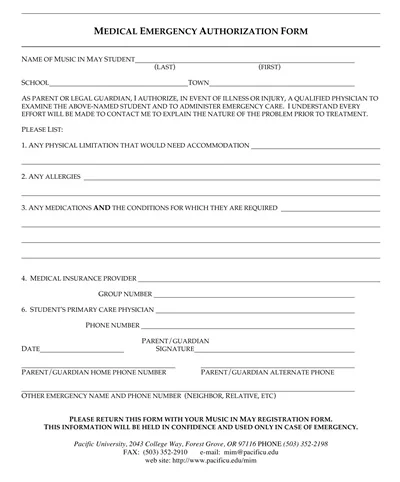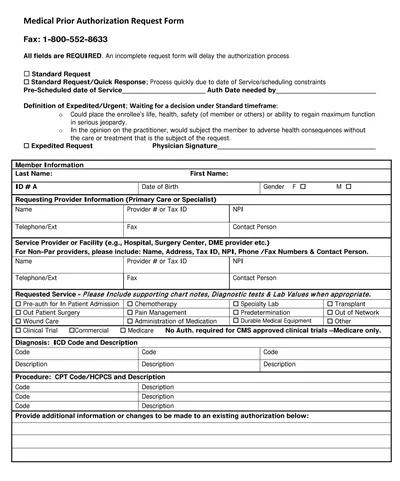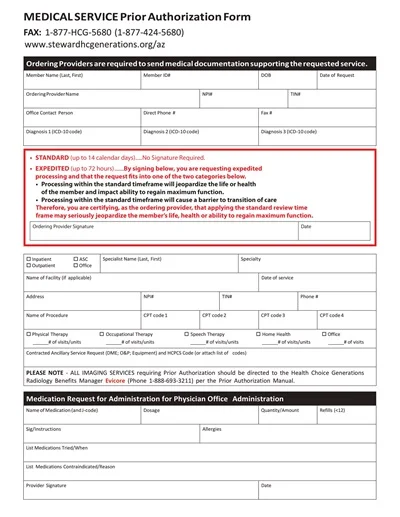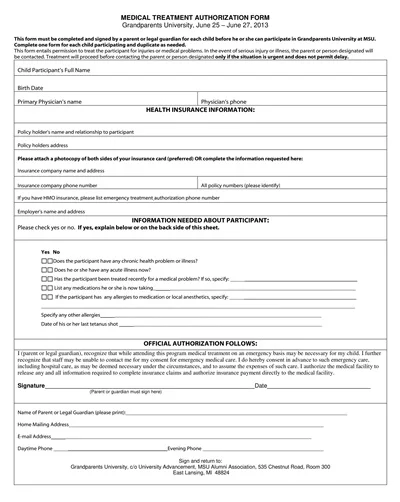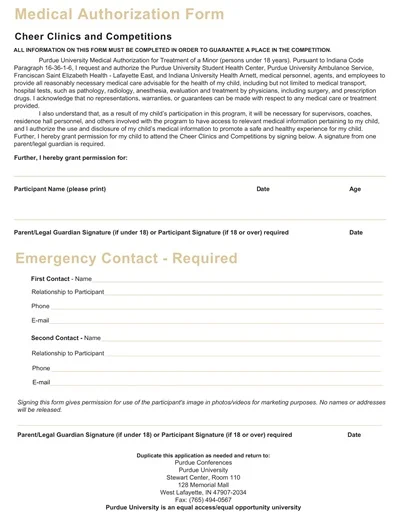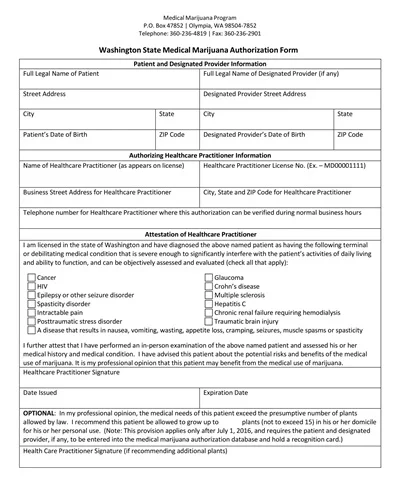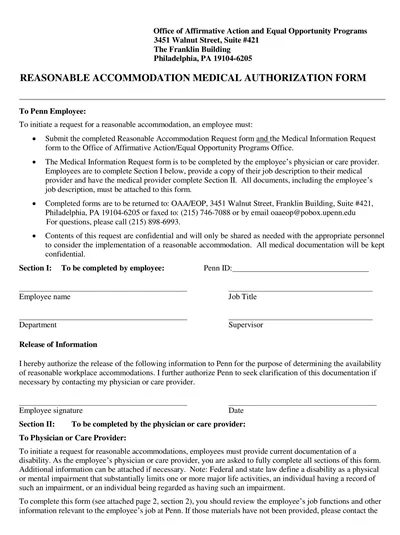28+ Free Medical Authorization Form Templates
Medical Authorization Form template is the standard document used in medical practice to get written consent from patients or their legal representatives to give doctors medical records access, perform medical procedures, or share health information with third parties. This type of form usually consists of critical information, which includes the patient’s data, the rights that were directly or indirectly allocated to the healthcare provider, the period of authorization, and any prevailing limits or conditions.
Table of Contents
Beyond, the template often bears the signatures of the patient or guardians and, occasionally, a witness for an assurance that the consent is informed and deliberate. It is in this particular instance that a patient’s privacy is protected, legal regulations are contacted, and the process of medical care is facilitated.
Download Free Medical Authorization Form Templates
What is a Medical Authorization Form?
A Medical Authorization Form is a core document that allows healthcare providers to give consent to medical treatment that might be needed in case of either a minor or an incapable patient. It is the one which is duly filled by parents, guardians or legally responsible persons on the condition or medical care that can be given.
It covers key information like the patient’s medical profile, allergies, current medications and contact details in the case of an emergency. A Medical Authorization Form is instrumental in the treatment process because it allows healthcare providers to make informed decisions and administer appropriate treatment without the time wasted, which will ensure the patient’s life.
Key Components of a Medical Authorization Form
A Medical authorization form is a legal document that people give to someone to be able to make health care decisions instead of the person. This can be a vital component of making sure that those who need emergency treatment get medical attention.
Several key components make up a medical authorization form:
- Patient Information: Complete information about name, birth date, address, contact number, and any other special information about the patient.
- Authorized Representative: Name and status of the person who has the legal right to make healthcare decisions for the patient, if it is different than the one for the patient.
- Healthcare Provider Information: Name of a healthcare-admitted provider or facility you are visiting, address and contact information.
- Description of Medical Information: Definitive details of the special medical information being released for disclosure, including records’ types or specific dates of the services.
- Purpose of Authorization: Admitted by the purpose for which the personal data is distributed or used.
- Expiration Date: Date or event when authorization will come to an end.
- Right to Revoke: The patient’s right to revoke authorization at any point in the process is explicitly explained, accompanied by a guide for this revocation.
- Signature and Date: Besides the authority of the patient or his/her authorized representative, as well as the date of signing.
- Witness or Notary: The statutory requirements such as witness signature or notary seal, if they are mandatory for the state rules.
Types of Medical Authorization Form
Medical authorization forms provide a vital function in healthcare as they are a key mechanism for allowing certain procedures and treatments to be carried out.
1. General Medical Release Agreement
Through this form, a patient can authorize medical records to be disclosed to another healthcare provider insurance company or anyone else as the case may be. It is mostly employed to secure continual care and to maximize the movement of medically relevant information.
2. Respecting Patients’ Confidentiality Form
Consent to treatment form asks a patient either themselves or guardian to sign a blank to get the right to perform a particular medical treatment. This model is very important to fully inform the patient and to ensure that she/he has all the information about the risks and benefits of the medications.
3. Emergency Medical Authorization Form
Most common among minors and those who are unable to give consent for themselves, this form allows the assigned guardian or representative of the patient to give consent for emergency medical treatment when the most urgent care is necessary, and the primary guardian is away.
4. HIPAA Authorization Form
A respective signature on the HIPAA form authorizes an individual or entity to receive a patient’s protected health information (PHI). This is however essential if the notion of privacy is to be upheld as necessary information is shared in the care coordination or billing issues.
5. Healthcare Advance Directive
This legal document names a healthcare proxy or agent who would carry out the healthcare agent’s responsibilities, especially when the patient has become powerless. It is comprehensive with various healthcare decisions being covered along its life span until the decision is revoked or when the patient regains their decision-making capacity.
Uses of Medical Authorization Forms
Medical authorization forms can be used for many different purposes in the healthcare industry. Being a caregiver of the child is an important part of patient care, especially during emergencies when no parent or guardian is around.
- Routine Medical Care: Medical authorization forms are for routine medical appointments, procedures and treatments. These tools allow for the legal documentation of the person’s consent to appropriate treatment by their healthcare providers.
- Specialized Care: For more sophisticated medical procedures, such as surgery or advanced treatments, patients have to fill out the medical authorization form. These forms confirm that patients are fully informed about the dangers of treatment and agree with it.
- Sharing of Medical Records: As has been discussed, medical authorization forms play a significant role in the exchange of medical records between healthcare professionals. This is even more so with patients who have chronic illnesses or who are receiving care from different providers.
- Emergency Situations: In case of an emergency knowing you have a pre-signed medical power of attorney document can be a lifesaver. It enables the healthcare personnel to provide needed treatments right away without delay which can be life-saving.
- Travel and Camps: Similarly, having medical waivers is imperative for minors who travel without their parents or go to camps. These certificates enable the child to get the needed medical care if there is a problem either during the trip or during camp activities.
- Legal Considerations: A medical authorization form is a legal document that serves as proof that consent for medical treatment has been obtained. This may be crucial when there are differences of opinion or controversies concerning the nature of the treatment given.
- Peace of Mind: For both patients and their families, knowing that a signed medical authorization form is put in place will bring them peace of mind. This means that there is certainty that the needed medical care will be given, even if the individual cannot talk or make decisions for him or herself.
- Efficiency: A medical authorization form simplifies the process of getting a patient’s consent for treatment by having healthcare providers and patients experience an efficient process. This makes for fast recovery and better outcomes.
- Record-keeping: By having a medical authorization form signed and kept on file, healthcare providers will ensure the precision of records of treatment and consent that have been made for future reference.
- Patient Autonomy: Altogether medical authorization forms protect the principle of patient autonomy that gives individuals the ability to make their own decisions regarding their healthcare.
Benefits of a Medical Authorization Form
A Medical Authorization Form involves many advantages such as the facilitation of the smooth running of healthcare processes. Firstly, it gives designated persons, typically family members or health care providers, the legal right to make such decisions on behalf of the patient, in particular in emergencies where the patient can’t make such a decision.
This form guarantees immediate access to key health data by medical staff including current medical conditions, allergies, and treatments that assist in proper diagnosis and treatment. This act also has the advantage of simplifying the legal situation and improving the understanding between the healthcare team and the patient’s support network, which leads to more personalized and coordinated care in the end.
How to Create a Medical Authorization Form Template
A medical authorization form template can be a convenient tool for people who want to protect their health wishes in case they become incapacitated or unable to make their decisions themselves.
Here, we will explain the ways of medical authorization form template creation.
Step 1: Identify the Purpose of the Form
The first main element of the medical authorization form template design is to define the goal of the form. What particular healthcare choices are you willing to give someone else the power to make for you? It might involve any choice regarding medical treatments, surgeries, or even end-of-life care.
Step 2: Decide on the Scope of Authority
As a second step, you should determine how much power to delegate to the appointed one. Are you willing to allow them to make only certain decisions including being capable of deciding about specific treatments and operations? Alternatively, do you prefer them to enjoy more power and be accountable for all your health-related issues?
Step 3: Pick a Nominated Person
It is noteworthy to identify the kind of person that you want to authorize to make your medical decisions. This could be your partner, friend, or a reliable medical person. This person should know your preferences and be ready to help make medical decisions on your behalf.
Step 4: Include Crucial Information
When designing the template for the medical authorization form be sure to add all necessary information. This may include the individual full name, contact information, relationship with the patient, and any stipulations regarding their decision-making authority, for example.
Step 5: Advise Legal Counsel
Depending on the state of the country’s law, you may have some specific conditions for making a valid medical authorization. You should note that it’s always recommended to seek legal advice for your form to meet all the requirements and regulations.
Step 6: Review and Update Regularly
Once the medical authorization form template is created, it will be important to review and update it regularly. Given that your healthcare needs and preferences may change over time, you need to review and revise your form so that it is in line with your current preferences.
